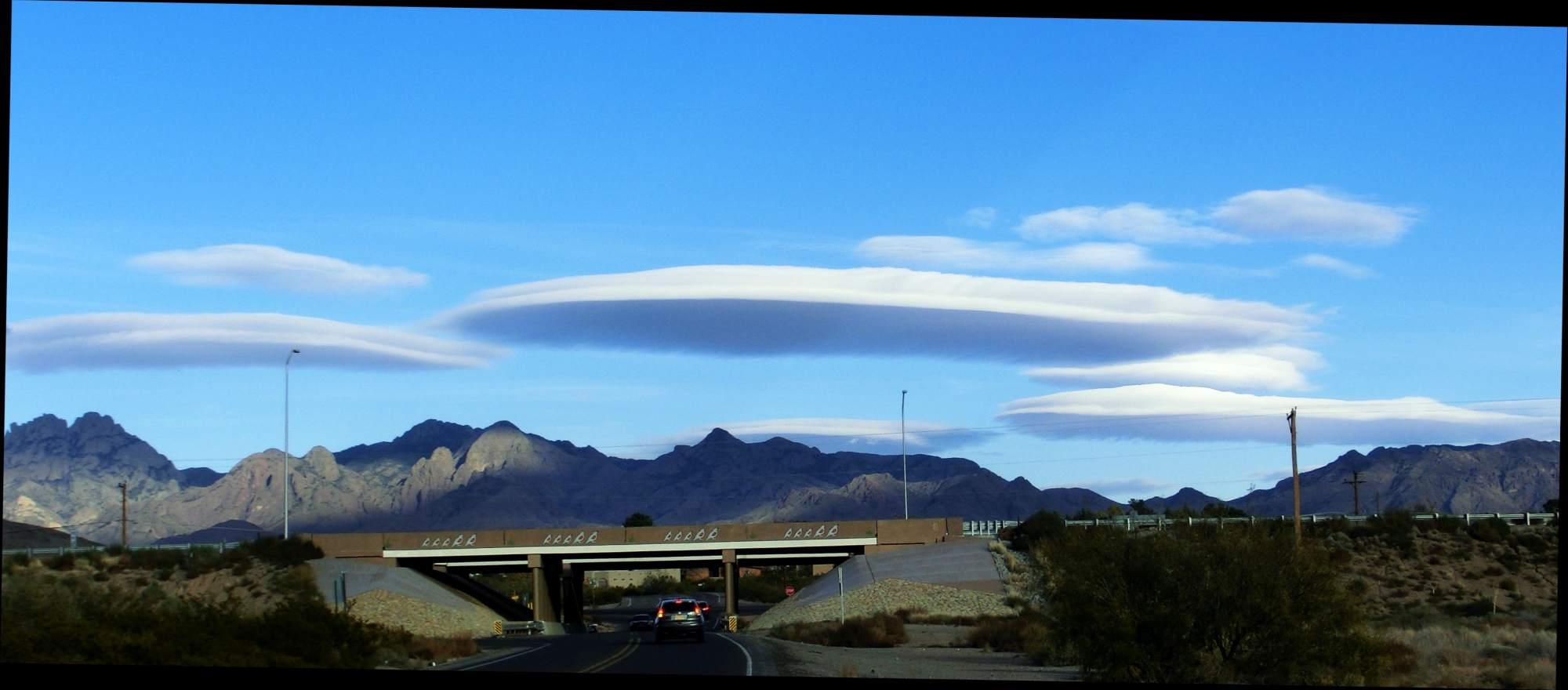This page starts with a blog for recent additions. You can skip to the fuller explanation of what this website is all about. This site is an outreach activity of the Las Cruces Academy, a non-profit private school in Mesilla, NM.
In a podcast for KRWG-RM, I promised to post a stunning video showing the how 215 human populations diversified from ancestral populations, all the way back to our origins in Africa. This is the work of Anthony Wohns at University College London and 9 collaborators. I post the mp4 video here, even though it is also available freely on YouTube, because the mp4 can be played in such apps as Movavi, where I found it interesting to run backwards (that is, forward in time). Enjoy!
A few things:
I started a 90-second segment, Science Digest, on the local NPR radio station, KRWG-FM, on 18 December 2018. You can find the segments as podcasts here. Meanwhile, there are many topics in science explored on this site; please take a look; leaves comments as you wish.
Will we colonize other planets: Here’s my take on the challenges (and why keeping our Earthly home in order is a much better bet)
Do you weigh less at noon because the Sun’s gravity is stronger, helping lift you a bit off the Earth’s surface? This is a classic physics problem, with an interesting answer that explains the tidal bulge on the midnight side.
Revised posting – the decay chain of uranium-238, all nicely typed up and linked; a detailed presentation of how and why one may calculate how much of each radionuclide in the chain is present at any time.
Script (lots of science news) from my 33rd show on KTAL LP FM, Las Cruces, as promised.
From my 34th and final show on KTAL: Why I like to share science.
From times past: my Ph. D. thesis at Caltech – a career story in brief, and points yet of interest, I may offer.

Pseudoscience about glutathione and nitrate
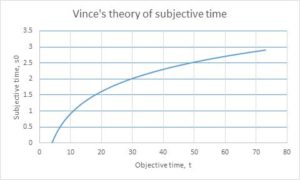
Subjective time: does time seem faster as we get older?
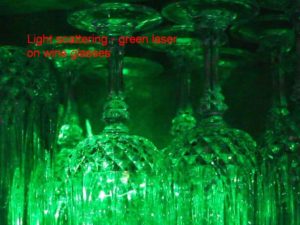
Adventures in light propagation – teaching and research

Radio show, Science: let’s take a look
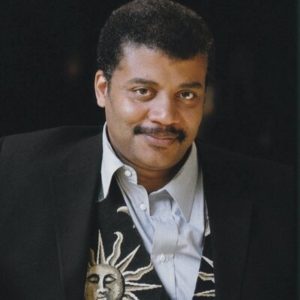
Star Talk, with Neil deGrasse Tyson
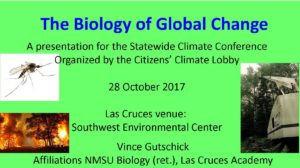
New Mexico Climate Conference, 28 Oct. 2017
The archive of all posts from this page is available (useful when more than 6 posts have been made); the full content of each blog is present there.
Much content has been added in several menus.
Welcome. This site is designed for both information and commentaries about science and technology, including their impact on society. It’s a personal page, from my research and teaching. Most of the posts are PDFs or HTMs, since reformatting so much material would be daunting.
My name is Vince Gutschick. I founded the site to share a number of things I’ve learned in a long career in science, rambling through chemistry, physics, biology, biophysics, computer modeling of biological and ecological phenomena, global change, remote sensing, and agronomy. My biography is online on another site for my small consulting company (quite dated; my company runs an occasional federal grant, currently [2016-17] a NASA grant on remote sensing of vegetation affected by gaseous emissions in air and through soil on Hawaiian volcanoes).
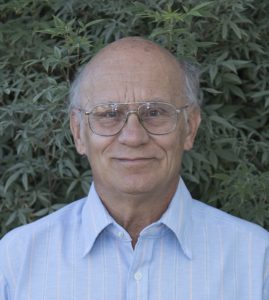
How I came to my perspective on a range of science, technology, and society: research, research management, teaching – (a post is coming)
The range of items you’ll find here includes:
- Brand new (21 June 2018): an analysis of the challenges of getting wind and solar energy onto the electric grid – no easy task, but so necessary.
- Math and science exercises with twists of relevance – for advanced students; fun also for established scientists – e.g., fossil fuel use in riding a bike vs. riding in a car; analytical solution for the trajectory of a model rocket; on a sociopolitical note, the mathematics of predatory lending
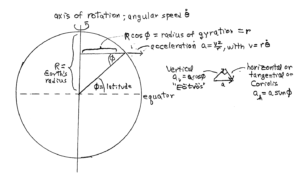
- Science experiments and demos for younger students, developed and tested by me – e.g., analysis of the statistics of radioactive decay as a Poisson process; testing the limits of flicker detection by the human eye; high-speed photography of a flashpaper airplane’s fiery end

- The story of a 3-year project by students in grades 4-8 at our school, designing and building from scratch a periodic table of the chemical elements, with 315 student-devised narrations about the elements in order of nucleosynthesis, in order of abundance, etc. Everything from soldering and wiring to programming to creative writing and more.
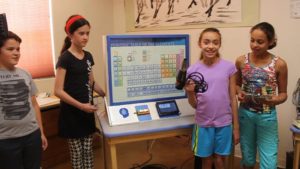
- Short popular essays, on topics ranging from how endemic malaria finally disappeared from the US (but not for long), to why bread-wheat growers have a hard time with rising CO2 levels in the air, to why US citizens look like big corn chips in their carbon-isotopic composition, and more
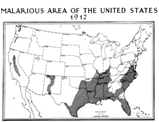
- Extended analyses of scientific and technological news…and of core ideas of science:
- What makes a planet habitable? This covers the orbital mechanics, stellar properties, planetary chemistry, and more; it’s a long essay for scientists and for members of the public with some advanced knowledge of science
- A look at the habitability of the recently discovered planet, Proxima Centauri b – being revised but ready to read
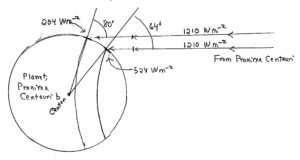
-
- (More topics in development)
- Critiques applying science to policy issues
- Can we define sustainability, and can we achieve it?
- Water use by electric power plants – once-through and wet tower methods really used almost the same amount of water, and the amounts are not as large as in the public perception
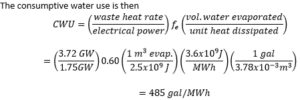
- How power plants lose efficiency “chasing” the variability of wind and solar power, cutting into gains…and what battery / storage technologies must meet to solidify the gains
- China’s need for land and water – how far does soft power go? What are the physical and biophysical constraints?
- The US loss of claim on world resources, physical and intellectual
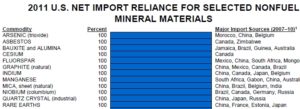
- “Water wedges” – a series of partial solutions to water shortfalls nationally and globally
- And much more
- Science relevant to personal decisions, some more amusing than serious:
- Compare water and power use, an evaporative cooler vs. refrigerated air
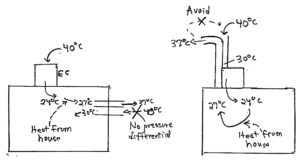
- How much is it worth, economically and environmentally, to turn down the thermostat a bit more on winter nights? Rather little, in our test case
- And more
- My published work – concepts with more application:
- Direct effects of CO2 on performance measures of crops and wild plants: from simple patterns to biogeographic chaos
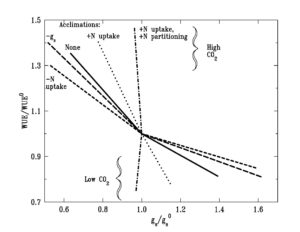
- From my corpus of work on biological modeling – philosophy and practice of biological modeling
- …..
- A long view of established science
- Evolution as a theory, a considerable edifice
- Viewpoints on interesting phenomena
- Why are plants green? The magnificent photophysical properties of the chlorophyll molecule
- Astounding extrapolations from “old” research on rough human scales to vast scales: Maxwell’s equations; Planck’s quantization of radiation…
- Ideas for development:
- How can so many species of plants coexist in competition? Tilman’s theory falls far short; look for a very high dimensionality of the environment
- Miscellany:
- Some computer programs of potential interest (most not novel but the code can save you some work) – e.g., computation of solar zenith and azimuthal angles for any location and time

(This will be reorganized by pages of this site to which the broad topics are linked, and will be set up as posts)
